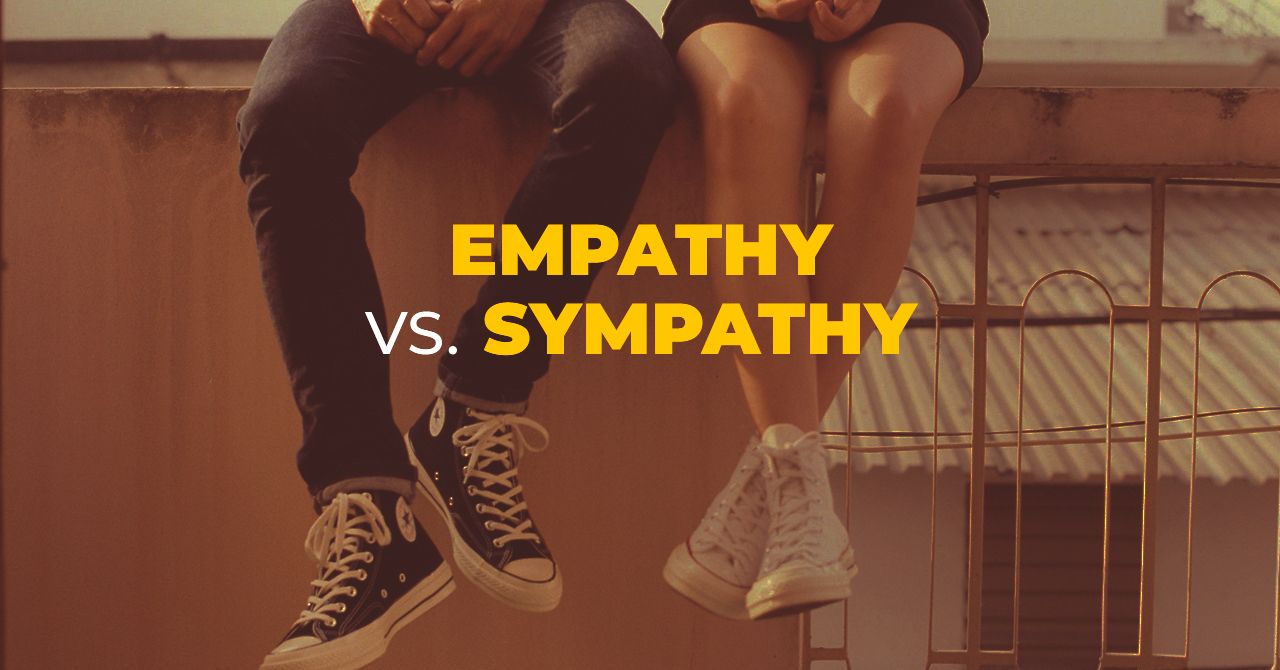
Empathy and Sympathy—What These Words Mean and How to Use Them
Despite their shared origin, the words “empathy” and “sympathy” have different meanings.
The terms sympathy and empathy have been around for quite a while and sound familiar to most people. We get it instantly when we hear or read that empathy is crucial for relationships or that someone feels sympathy for someone else. But our intuition is no longer sufficient when we need to use one of these words in speech or writing.
Despite their shared origin, the words “empathy” and “sympathy” have different meanings. Let’s define those meanings and remember how to use those words correctly.
The Origin of Terms Sympathy and Empathy: Pathos
Let’s focus on the “pathy” part of those words. In English, “pathy” is a combining form rather than a standalone word. It came from ancient Greek. But in Greek, “pathos” was not only a proper word but also an essential concept that we can find in the works of early philosophers, poets, and literary theorists.
Famous Greek tragedians Aeschylus, Sophocles, and Euripides, majestically exploited the human capacity for empathy by displaying “pathos” in their famous plays. Their audience cried over the tragic destiny of Iphigenia (“Iphigenia in Tauris”) and held their breaths during the key scenes of “Oresteia.”
The characters of those plays had to endure incredible hardships. They had to decide whether to sacrifice a kingdom or a daughter and what to do when they found out that they were married to their own mother (“Oedipus Rex” by Sophocles).
Although those situations weren’t something people—now or then—experience in their lives, the audience could clearly evoke the characters’ insecurities, rage, despair, and suffering, which are all related to pathos.
Sympathy vs. Empathy—The Difference in Meaning
The ancient Greek tragedy can help us understand what empathy is. While the characters experience “pathos,” the audience becomes empathetic. They internalize those intense emotions, see themselves in the protagonist’s skin, and experience a wide range of feelings evoked by the play.
A similar thing happens when we cry while watching a sad movie or hearing a touching confession of another person. Whenever we genuinely feel sadness, fear, anger, or even joy, because of someone else’s experience, that’s empathy.
In short, empathy is our ability to get into someone else’s skin, take their perspective, and feel whatever they might be feeling. Sympathy, on the other hand, doesn’t have to include such deep emotions. It is still about taking part in another person’s feelings, but without actually feeling the same.
For example, imagine your best friend’s pet has just died, and she is crying her heart out. If you feel sorry that your friend is so sad and you really wish to comfort her, that’s sympathy. But if you instantly feel as if your own pet is dead and your heart starts aching with sorrow, that’s empathy. (If you feel both at the same time, that’s the best of both worlds and your friend is lucky to have you.)
The Meaning of Sympathize and Empathize
Sympathize and empathize are verbs that refer to actively experiencing empathy or feeling sympathy for someone. The difference between them is the same as in related nouns. When we’re sorry for someone’s loss and try to comfort them, we sympathize with them. When, on the other hand, we get in the same emotional state as another person, we’re empathizing.
Examples of Sympathy, Empathy, Sympathize and Empathize in Sentences
He felt sympathy for the people from the areas affected by the flood.
I felt empathy for the owner of a terminally ill cat because I had lost my pet the year before.
I sympathize with you for your loss, and I will gladly help you in any way I can.
Her ability to empathize with people made her an extraordinary corporate communications manager.


















